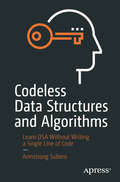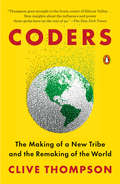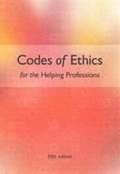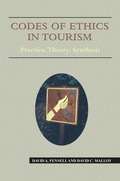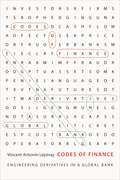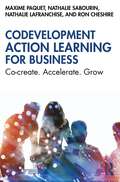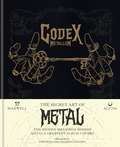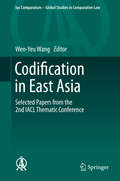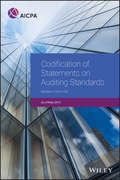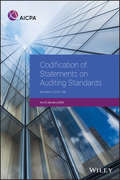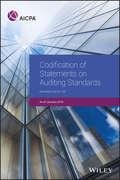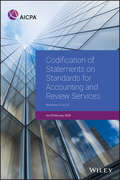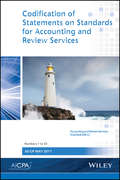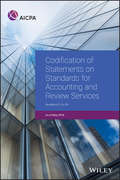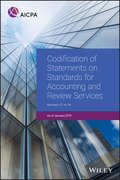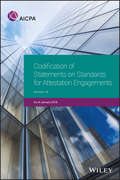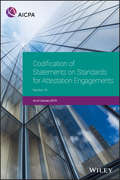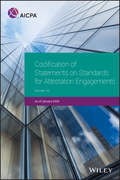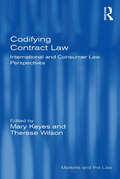- Table View
- List View
Codecademy: Monetizing a Movement?
by Lisa Mazzanti Jeffrey J. BussgangCodecademy, an open-platform, online community for learning computer programming, launched in 2011. By 2014, the company had raised a total of $12.5 million in funding and was, on many fronts, an overwhelming success. However, there were still no revenues. The founders decided it was time to experiment with different monetization strategies before deciding on a way forward. Although they wanted to avoid being prematurely pressured into decisions that went against their open-platform philosophy, they also knew that in order to fulfill their mission to democratize education, they had to eventually build a revenue-generating business. But what business model should they pursue and what monetization experiments should they run?
Codecademy: Monetizing a Movement?
by Lisa Mazzanti Jeffrey J. BussgangCodecademy, an open-platform, online community for learning computer programming, launched in 2011. By 2014, the company had raised a total of $12.5 million in funding and was, on many fronts, an overwhelming success. However, there were still no revenues. The founders decided it was time to experiment with different monetization strategies before deciding on a way forward. Although they wanted to avoid being prematurely pressured into decisions that went against their open-platform philosophy, they also knew that in order to fulfill their mission to democratize education, they had to eventually build a revenue-generating business. But what business model should they pursue and what monetization experiments should they run?
Codeless Data Structures and Algorithms: Learn DSA Without Writing a Single Line of Code
by Armstrong SuberoIn the era of self-taught developers and programmers, essential topics in the industry are frequently learned without a formal academic foundation. A solid grasp of data structures and algorithms (DSA) is imperative for anyone looking to do professional software development and engineering, but classes in the subject can be dry or spend too much time on theory and unnecessary readings. Regardless of your programming language background, Codeless Data Structures and Algorithms has you covered.In this book, author Armstrong Subero will help you learn DSAs without writing a single line of code. Straightforward explanations and diagrams give you a confident handle on the topic while ensuring you never have to open your code editor, use a compiler, or look at an integrated development environment. Subero introduces you to linear, tree, and hash data structures and gives you important insights behind the most common algorithms that you can directly apply to your own programs. Codeless Data Structures and Algorithms provides you with the knowledge about DSAs that you will need in the professional programming world, without using any complex mathematics or irrelevant information. Whether you are a new developer seeking a basic understanding of the subject or a decision-maker wanting a grasp of algorithms to apply to your projects, this book belongs on your shelf. Quite often, a new, refreshing, and unpretentious approach to a topic is all you need to get inspired. What You'll LearnUnderstand tree data structures without delving into unnecessary details or going into too much theoryGet started learning linear data structures with a basic discussion on computer memory Study an overview of arrays, linked lists, stacks and queuesWho This Book Is ForThis book is for beginners, self-taught developers and programmers, and anyone who wants to understand data structures and algorithms but don’t want to wade through unnecessary details about quirks of a programming language or don’t have time to sit and read a massive book on the subject. This book is also useful for non-technical decision-makers who are curious about how algorithms work.
Coders: The Making of a New Tribe and the Remaking of the World
by Clive ThompsonHello, world.Facebook's algorithms shaping the news. Self-driving cars roaming the streets. Revolution on Twitter and romance on Tinder. We live in a world constructed of code--and coders are the ones who built it for us. From acclaimed tech writer Clive Thompson comes a brilliant anthropological reckoning with the most powerful tribe in the world today, computer programmers, in a book that interrogates who they are, how they think, what qualifies as greatness in their world, and what should give us pause. They are the most quietly influential people on the planet, and Coders shines a light on their culture.In pop culture and media, the people who create the code that rules our world are regularly portrayed in hackneyed, simplified terms, as ciphers in hoodies. Thompson goes far deeper, dramatizing the psychology of the invisible architects of the culture, exploring their passions and their values, as well as their messy history. In nuanced portraits, Coders takes us close to some of the great programmers of our time, including the creators of Facebook's News Feed, Instagram, Google's cutting-edge AI, and more. Speaking to everyone from revered "10X" elites to neophytes, back-end engineers and front-end designers, Thompson explores the distinctive psychology of this vocation--which combines a love of logic, an obsession with efficiency, the joy of puzzle-solving, and a superhuman tolerance for mind-bending frustration. Along the way, Coders thoughtfully ponders the morality and politics of code, including its implications for civic life and the economy. Programmers shape our everyday behavior: When they make something easy to do, we do more of it. When they make it hard or impossible, we do less of it. Thompson wrestles with the major controversies of our era, from the "disruption" fetish of Silicon Valley to the struggle for inclusion by marginalized groups.In his accessible, erudite style, Thompson unpacks the surprising history of the field, beginning with the first coders -- brilliant and pioneering women, who, despite crafting some of the earliest personal computers and programming languages, were later written out of history. Coders introduces modern crypto-hackers fighting for your privacy, AI engineers building eerie new forms of machine cognition, teenage girls losing sleep at 24/7 hackathons, and unemployed Kentucky coal-miners learning a new career. At the same time, the book deftly illustrates how programming has become a marvelous new art form--a source of delight and creativity, not merely danger. To get as close to his subject as possible, Thompson picks up the thread of his own long-abandoned coding skills as he reckons, in his signature, highly personal style, with what superb programming looks like. To understand the world today, we need to understand code and its consequences. With Coders, Thompson gives a definitive look into the heart of the machine.
Codes Of Ethics For The Helping Professions
by Gerald Corey Marianne Schneider CoreyThis brief supplement offers students a handy resource that contains codes of ethics for the various professional organizations.
Codes of Ethics in Tourism
by David A. Fennell David MalloyWith ethics fast becoming a mainstay in tourism studies and the tourism industry in general, this volume provides a timely and intensive look at the theory and practice of codes of ethics in tourism. While the book includes a broad overview of what has been done to date in tourism studies in the area of code development and implementation, it ranges much more widely to incorporate theoretical work from outside the tourism field. This interdisciplinary approach serves two essential purposes. First, it furnishes the study of tourism codes of ethics with a theoretical foundation, which up to the present has been lacking. Second, it affords tourism scholars the opportunity to investigate codes in tourism from a multiplicity of perspectives, with direct relevance to the industry at many levels.
Codes of Finance: Engineering Derivatives in a Global Bank
by Vincent Antonin LépinayA behind-the-scenes account of the derivatives business at a major investment bankThe financial industry's invention of complex products such as credit default swaps and other derivatives has been widely blamed for triggering the global financial crisis of 2008. In Codes of Finance, Vincent Antonin Lépinay, a former employee of one of the world’s leading investment banks, takes readers behind the scenes of the equity derivatives business at the bank before the crisis, providing a detailed firsthand account of the creation, marketing, selling, accounting, and management of these financial instruments—and of how they ultimately created havoc inside and outside the bank.
Codevelopment Action Learning for Business: Co-create. Accelerate. Grow
by Maxime Paquet Nathalie Sabourin Nathalie Lafranchise Ron CheshireWorkplaces where the focus is on innovation, teamwork and learning have become a reality, thanks to a simple, practical, and effective approach called CAL: Codevelopement Action Learning. This book will help you to create a collaborative and empowering culture in your organization.The CAL method, tools, and theoretical foundations for each component are presented in detail here. Real case studies and research findings on the tangible benefits and impacts of the approach enrich its content. Authored by a dynamic team of CAL business coaches and academics, the knowledge is shared in a straightforward and accessible manner.Business leaders, entrepreneurs, human resources and learning professionals, coaches, facilitators, scholar practitioners, and more will welcome this book’s thought-provoking guidance to co-create solutions, accelerate goals, and grow capabilities for the 21st century.
Codex Metallum: The secret art of metal decoded
by Alt236 Maxwell***Decode the secret language of metal.Metal music has a rich and powerful visual language like no other genre. From death and the devil to mythology and the occult, the artworks of its greatest albums carry a complex hidden code of deeper meanings.Codex Metallum is your unique guide to these visual themes. Featuring the covers of 250 iconic albums from Black Sabbath to Slipknot and Motörhead to Pantera, as well as bespoke illustrations by Rammstein collaborators Førtifem, this one-of-a-kind book decodes the imagery of metal and unlocks the secrets hidden within.Packaged in an embossed, leather-effect case with metallic foil finishes, Codex Metallum is a stunning collector's item and essential reading for any metalhead.
Codex Metallum: The secret art of metal decoded
by Alt236 Maxwell***Decode the secret language of metal.Metal music has a rich and powerful visual language like no other genre. From death and the devil to mythology and the occult, the artworks of its greatest albums carry a complex hidden code of deeper meanings.Codex Metallum is your unique guide to these visual themes. Featuring the covers of 250 iconic albums from Black Sabbath to Slipknot and Motörhead to Pantera, as well as bespoke illustrations by Rammstein collaborators Førtifem, this one-of-a-kind book decodes the imagery of metal and unlocks the secrets hidden within.Packaged in an embossed, leather-effect case with metallic foil finishes, Codex Metallum is a stunning collector's item and essential reading for any metalhead.
Codification in East Asia: Selected Papers from the 2nd IACL Thematic Conference (Ius Comparatum - Global Studies in Comparative Law #2)
by Wen-Yeu WangThis book looks at codification from a broad, international perspective, discussing general themes as well as various legal fields. Since codification is a subject of intense current interest in East Asia, this second volume on codification is dedicated to the sub-theme of codification and legal transplant in this area, focusing on China, Japan, Korea and Taiwan. It includes two papers that discuss development of codification in East Asia and Korea in particular. It is also comprised of two reports that draw comparative lessons from Japan, India and Indonesia. In addition, this volume consists of four general reports and 19 national reports that guide readers through the knowledge of codification of commercial law, administrative law, civil law and private international law in East Asia. This book is developed from papers presented at the 2012 Thematic Conference of the International Academy of Comparative Law.
Codification of Statements on Auditing Standards 2019: Numbers 122 to 135 (AICPA)
by AicpaThis 2019 edition delivers the current Statements on Auditing Standards (SASs) and related interpretations in a codified format, giving accountants the most up-to-date information, they need to conduct successful audits and provide high-quality services to their clients. <p><p> Issued directly from the AICPA, this authoritative guidance is essential to fully understand the requirements associated with an audit. <p> This codification is fully indexed and arranged by subject. The codified standards and related interpretations are vital to practitioners performing audits.
Codification of Statements on Auditing Standards, Numbers 122 to 138: 2020 (AICPA)
by AICPAThis 2020 edition delivers the current Statements on Auditing Standards (SASs) and related interpretations in a codified format, giving up-to-date information needed to conduct successful audits and provide high-quality services to clients. Issued directly by the AICPA, this authoritative guidance is essential to fully understand the requirements associated with an audit. This edition includes the following new standards: SAS No. 136, Forming an Opinion and Reporting on Financial Statements of Employee Benefit Plans Subject to ERISA SAS No. 137, The Auditor’s Responsibilities Relating to Other Information Included in Annual Reports SAS No. 138, Amendments to the Description of the Concept of Materiality
Codification of Statements on Auditing Standards: Numbers 122 to 133, January 2018
by AicpaThis edition delivers the current Statements on Auditing Standards (SASs) and related interpretations in a codified format, giving auditors the most up-to-date information they need to conduct successful audits and provide high-quality services to their clients. This authoritative guidance, issued directly from the AICPA, is essential to fully understand the requirements associated with an audit. This edition includes the following new standard: SAS No. 133, Auditor Involvement With Exempt Offering Documents This codification is fully indexed and arranged by subject. The codified standards and related interpretations are vital to practitioners performing audits.
Codification of Statements on Standards for Accounting and Review Services, Numbers 21 - 25: Numbers 21 - 24 (AICPA)
by AICPAThis book provides the requirements for performing engagements in accordance with Statements on Standards for Accounting and Review Services (SSARS). This updated edition includes the authoritative standards and interpretations applicable to preparation, compilation, and review engagements. The guidance and related interpretations will help you apply the standards in specific circumstances. The codification also clearly shows amendments, deleted or superseded content, and conforming changes due to the issuance of other authoritative guidance. The codification contains all SSARSs, including SSARS No. 21, which is now effective, through SSARS No. 25, Materiality in a Review of Financial Statements and Adverse Conclusions. SSARS No. 25 further converges AR-C section 90 with International Standard on Review Engagements (ISRE) 2400 (Revised), Engagements to Review Historical Financial Statements, and minimizes differences with the auditing standards regarding concepts that are consistent regardless of the level of service performed on the financial statements.
Codification of Statements on Standards for Accounting and Review Services: Numbers 1-23
by AicpaIn addition to SSARS No. 21, which is now effective, this edition includes two newly released Statements on Standards for Accounting and Review Services (SSARS): SSARS No. 22, Compilation of Pro Forma Financial Information, and SSARS No. 23, Omnibus Statement on Standards for Accounting and Review Services—2016. The codification statements are fully indexed and arranged by subject. The guidance (and related interpretations to the extent applicable) help apply the standards in specific circumstances and clearly show amendments, deleted or superseded portions, and conforming changes due to the issuance of other authoritative guidance.
Codification of Statements on Standards for Accounting and Review Services: Numbers 21-24
by AicpaThis edition includes the authoritative standards and interpretations applicable to preparation, compilation, and review engagements. These standards provide the requirements for practitioners performing these engagements. In addition to SSARS No. 21, which is now effective, this edition includes the newly released Statements on Standards for Accounting and Review Services (SSARS): SSARS No. 24, Omnibus Statement on Standards for Accounting and Review Services—2018. SSARS No. 24 creates a new section, AR-C section 100, Special Considerations— International Reporting Issues, to provide requirements and guidance when an accountant is engaged to perform a compilation or review in either of the following circumstances: The financial statements have been prepared in accordance with a financial reporting framework generally accepted in another country. The compilation or review is to be performed in accordance with both SSARSs and another set of compilation or review standards. Additional significant changes attributed to SSARS No. 24 include amendments to the following sections: AR-C Section 60, General Principles for Engagements Performed in Accordance with Statements on Standards for Accounting and Review Services AR-C Section 90, Review of Financial Statements This codification is fully indexed and arranged by subject. The guidance (and related interpretations to the extent applicable) help apply the standards in specific circumstances and clearly show amendments, deleted or superseded portions, and conforming changes due to the issuance of other authoritative guidance.
Codification of Statements on Standards for Accounting and Review Services: Numbers 21-24 (Aicpa Ser.)
by AicpaThis updated edition for accountants and auditors who perform engagements in accordance with SSARS includes the authoritative standards and interpretations applicable to preparation, compilation, and review engagements. The codification is fully indexed and arranged by subject. The guidance (and related interpretations to the extent applicable) will help accountants and auditors apply the standards in specific circumstances and clearly shows amendments, deleted or superseded portions, and conforming changes due to the issuance of other authoritative guidance. In addition to SSARS No. 21, which is now effective, this guide includes the Statements on Standards for Accounting and Review Services (SSARS) through SSARS No. 24, Omnibus Statement on Standards for Accounting and Review Services—2018.
Codification of Statements on Standards for Attestation Engagements
by AicpaThis title provides the current clarified Statements on Standards for Attestation Engagements (SSAEs) and related interpretations in a codified format, providing accountants with the most up-to-date information needed to perform attestation engagements. This authoritative guidance, issued directly by the AICPA, is essential to fully understanding the requirements associated with an attestation engagement. In addition to SSAE No. 18, Attestation Standards: Clarification and Recodification, which is now effective, this edition includes the following new standard: Interpretation No. 4, “Performing and Reporting on an Attestation Engagement Under Two Sets of Attestation Standards,” of AT-C section 105, Concepts Common to All Attestation Engagements This codification is fully indexed and arranged by subject. The codified standards and related interpretations are vital to practitioners performing attestation engagements.
Codification of Statements on Standards for Attestation Engagements, January 2019: Codification Of Statements On Standards For Attestation Engagements, Numbers 1 To 18, January 2017 (AICPA)
by AicpaThis edition delivers the current clarified Statements on Standards for Attestation Engagements (SSAEs) and related interpretations in a codified format, providing the most up-to-date information needed to perform attestation engagements. Issued directly by the AICPA, this authoritative guidance is essential to fully understanding the requirements associated with an attestation engagement. This codification is fully indexed and arranged by subject. The codified standards and related interpretations are vital to practitioners performing attestation engagements
Codification of Statements on Standards for Attestation Engagements: 2020 (AICPA)
by AICPAThis 2020 edition delivers the current clarified Statements on Standards for Attestation Engagements (SSAEs) and related interpretations in a codified format, providing the most up-to-date information needed to perform attestation engagements. This authoritative guidance, issued directly by the AICPA, is essential to fully understanding the requirements associated with an attestation engagement. This edition includes the following new standards: SSAE No. 19, Agreed-Upon Procedures Engagements SSAE No. 20, Amendments to the Description of the Concept of Materiality
Codifying Contract Law: International and Consumer Law Perspectives (Markets and the Law)
by Mary Keyes Therese WilsonExploring the advantages and disadvantages of codifying contract law, this book considers the question from the perspectives of both civil and common law systems, referring in detail to issues of international and consumer law. With contributions from leading international scholars, the chapters present a range of opinions on the virtues of codification, encouraging further debate on this topic. The book commences with a discussion on the internationalization imperative for codification of contract law. It then turns to regional issues, exploring first codification attempts in the European Union and Japan, and then issues relevant to codification in the common law jurisdictions of Australia, New Zealand and the United States. The collection concludes with two chapters which consider the need to draw upon both private and comparative international law perspectives to inform any codification reforms. This book will be of interest to international and comparative contract law academics, as well as regulators and policy-makers.
Codman & Shurtleff, Inc.: Planning and Control System
by Robert L. SimonsDetailed description of the planning and control systems in use at Johnson & Johnson. Focuses on the actions of managers in one subsidiary in revising budget targets. Illustrates intensive strategic planning and financial planning process in a large, decentralized company. Includes interviews with the president and senior executives concerning benefits of the system. Raises issue of the role of formal control systems in decentralized organizations.
Coercion and Social Welfare in Public Finance
by Jorge Martinez-Vazquez Stanley L. WinerAlthough coercion is a fundamental and unavoidable part of our social lives, economists have not offered an integrated analysis of its role in the public economy. The essays in this book focus on coercion arising from the operation of the fiscal system, a major part of the public sector. Collective choices on fiscal matters emerge from and have all the essential characteristics of social interaction, including the necessity to force unwanted actions on some citizens. This was recognized in an older tradition in public finance which can still serve as a starting point for modern work. The contributors to the volume recognize this tradition, but add to it by using contemporary frameworks to study a set of related issues concerning fiscal coercion and economic welfare. These issues range from the compatibility of an open access society with the original Wicksellian vision to the productivity of coercion in experimental games.

